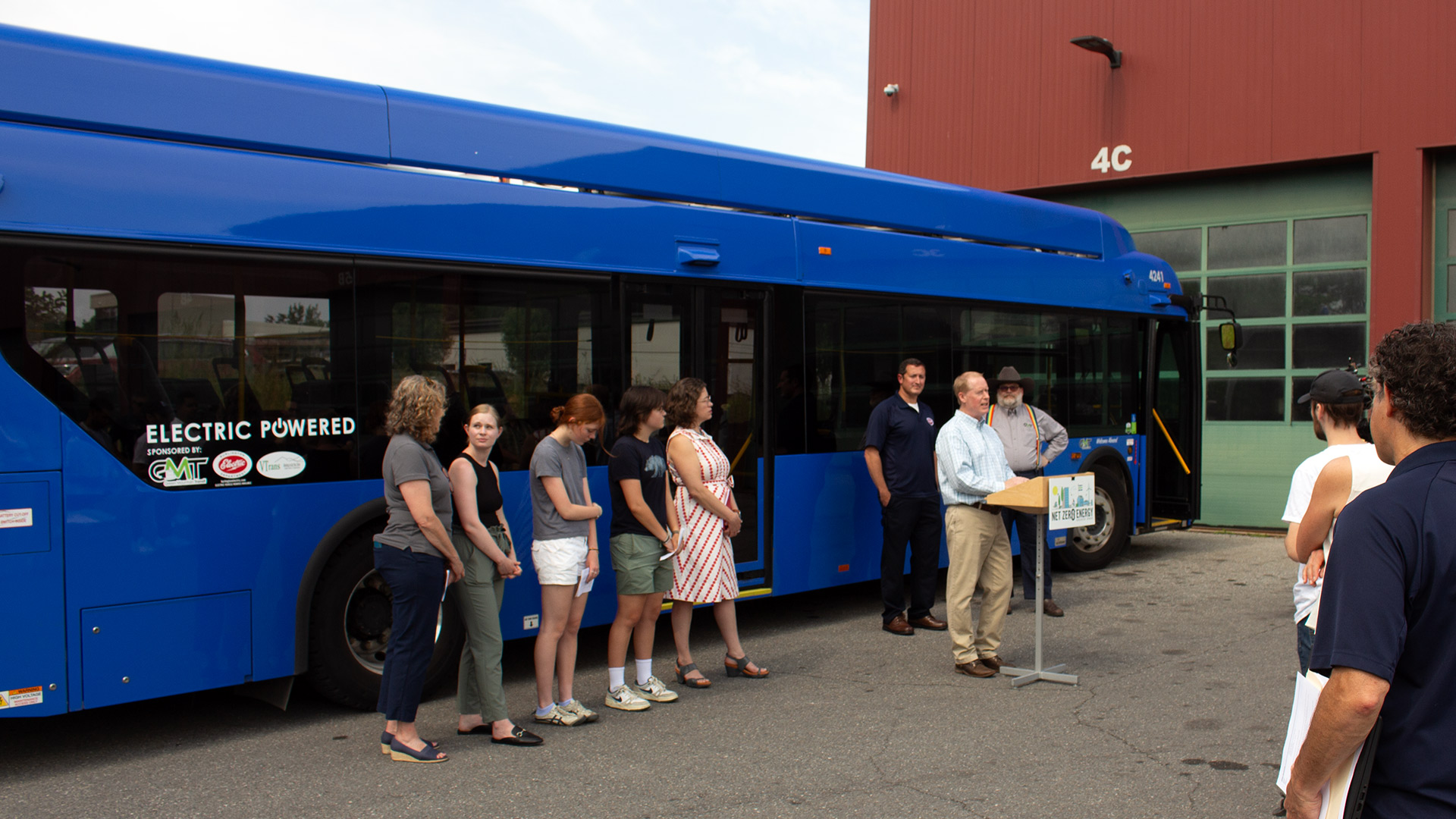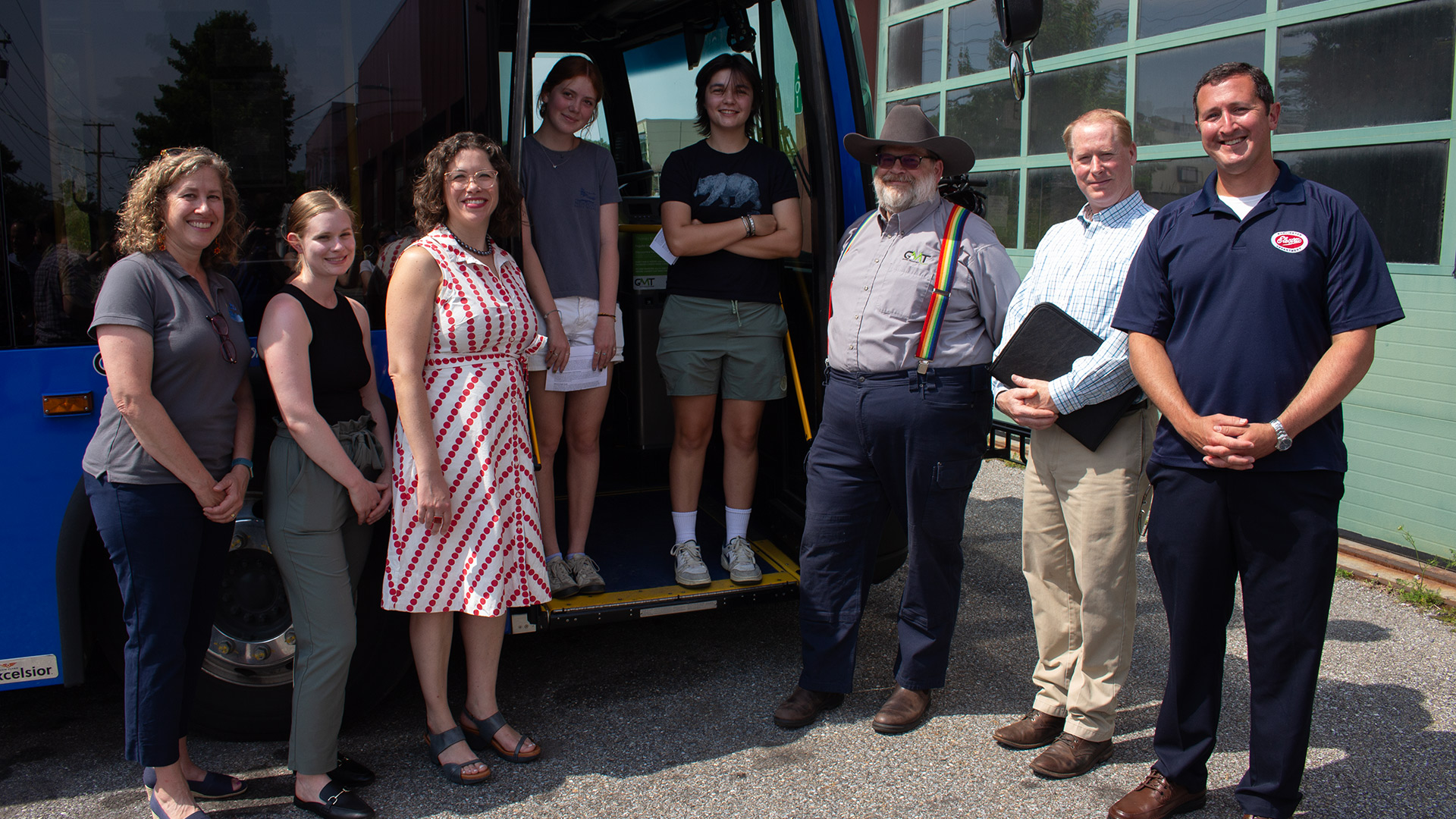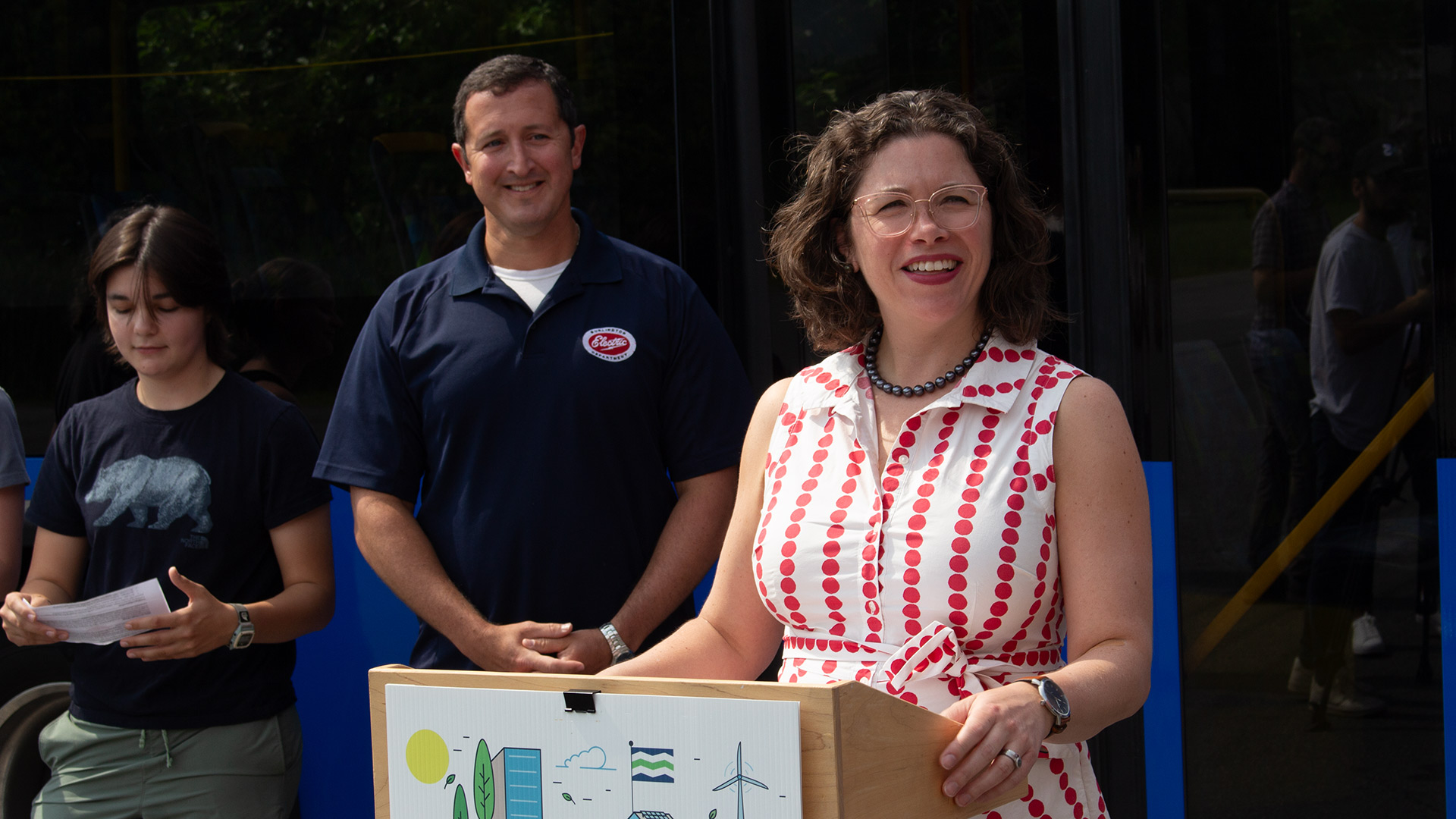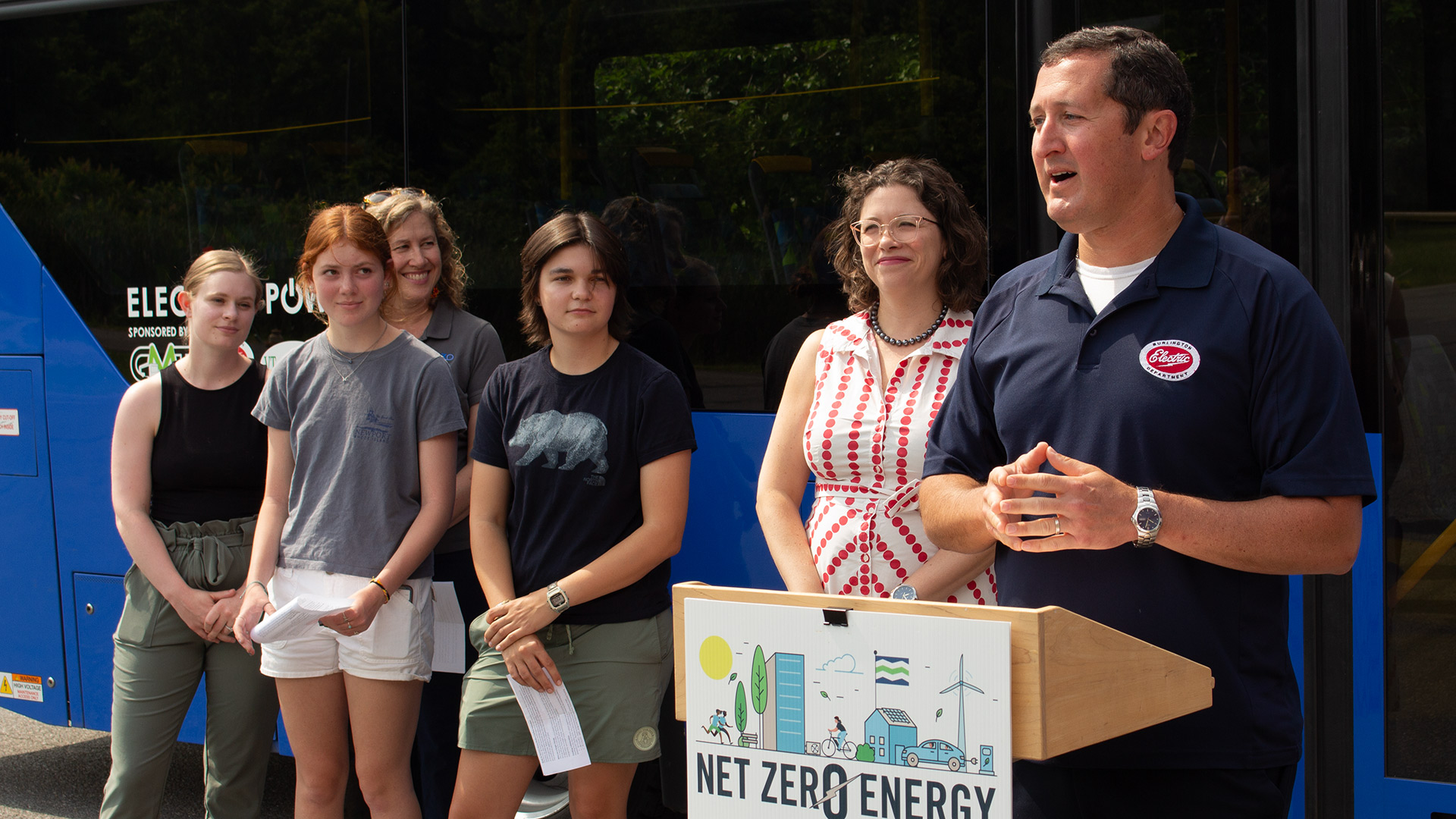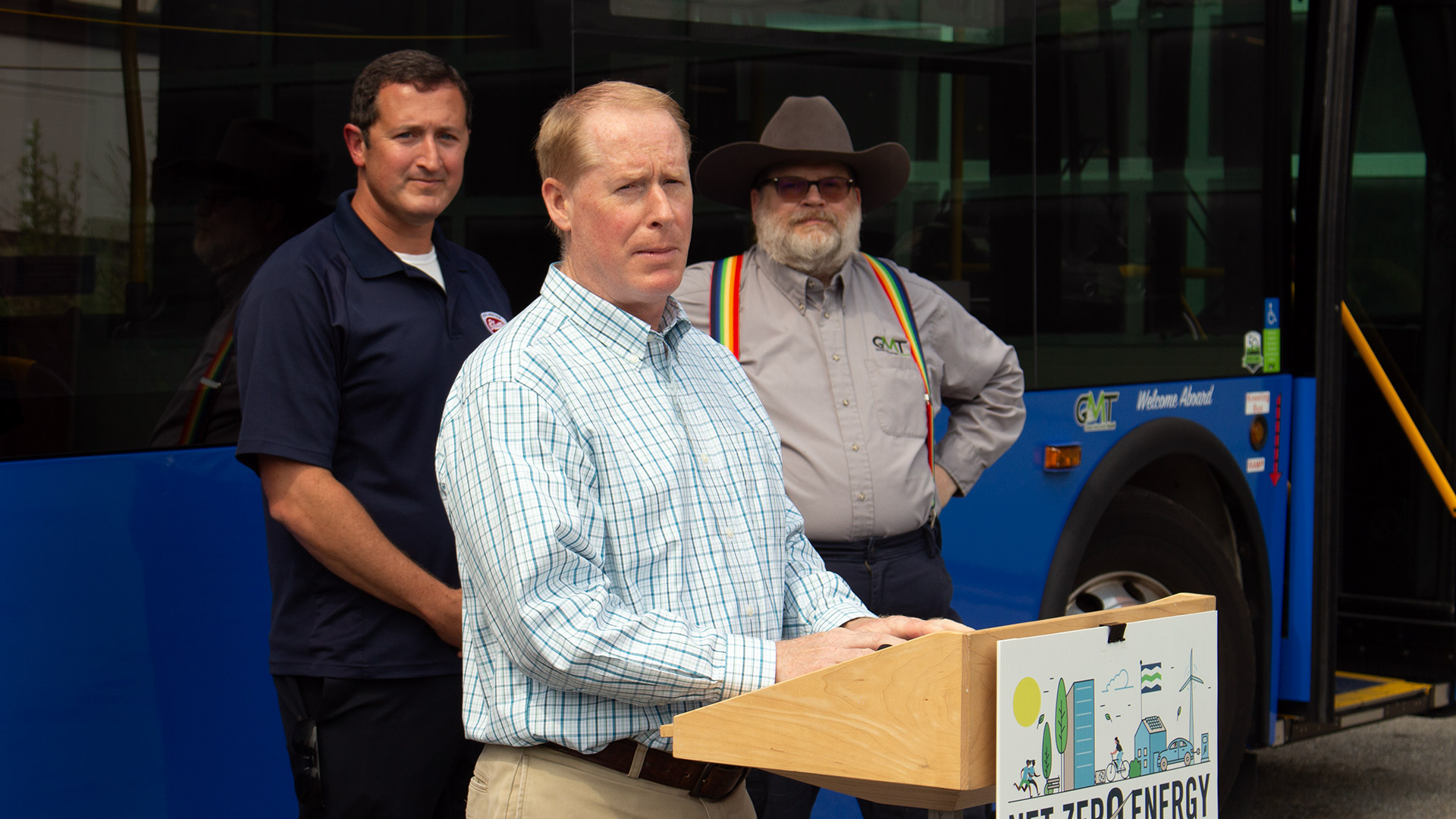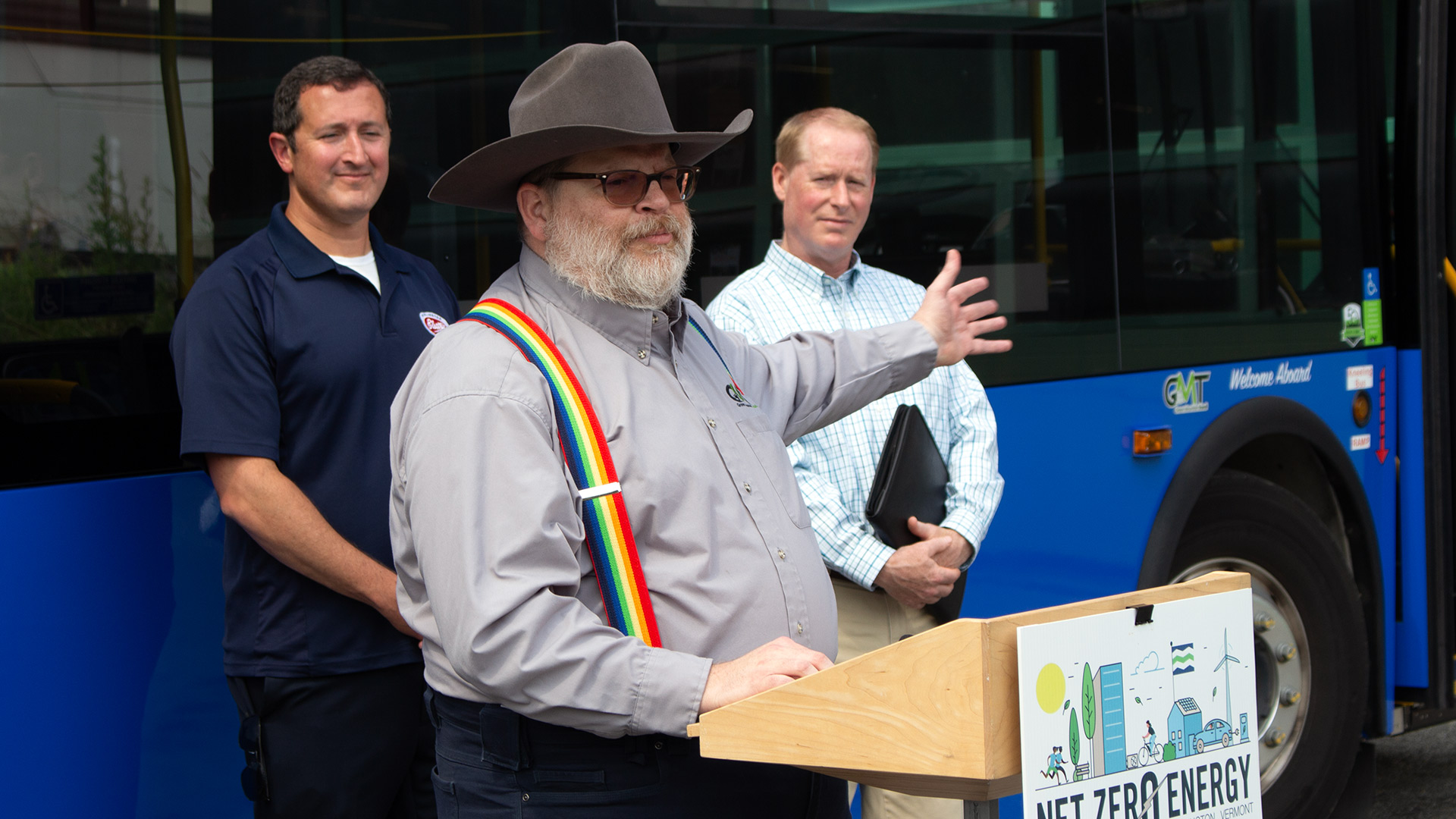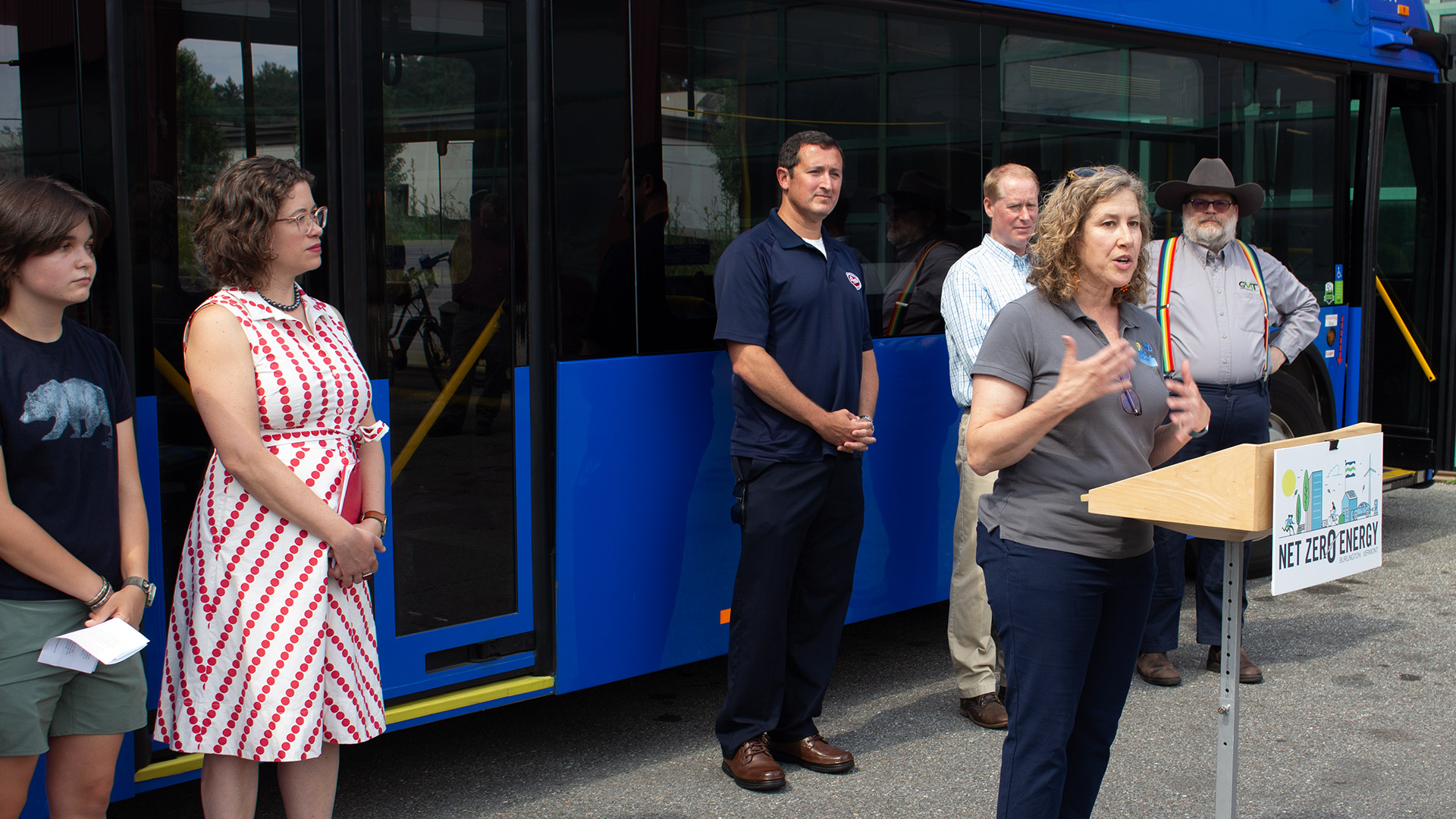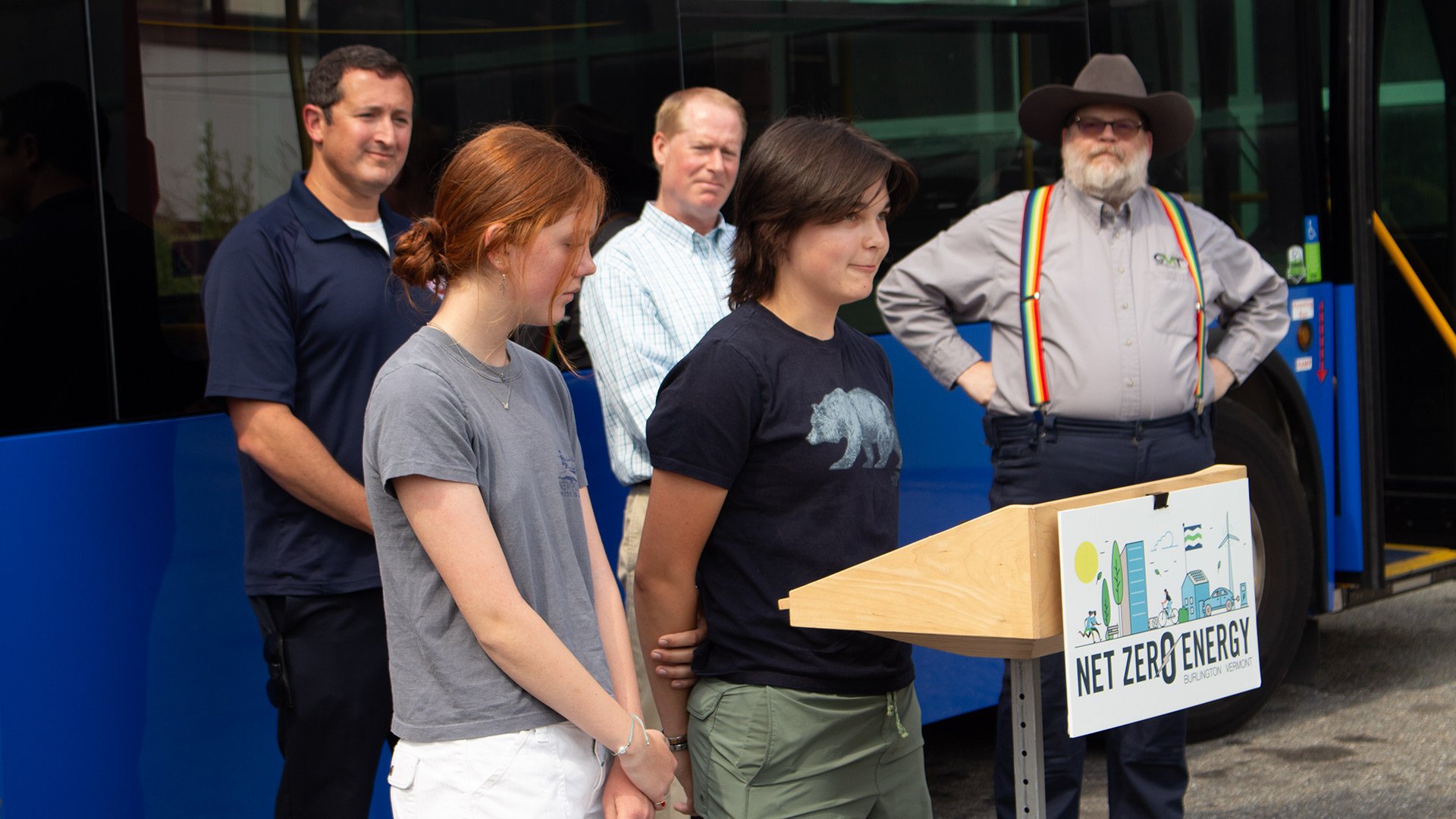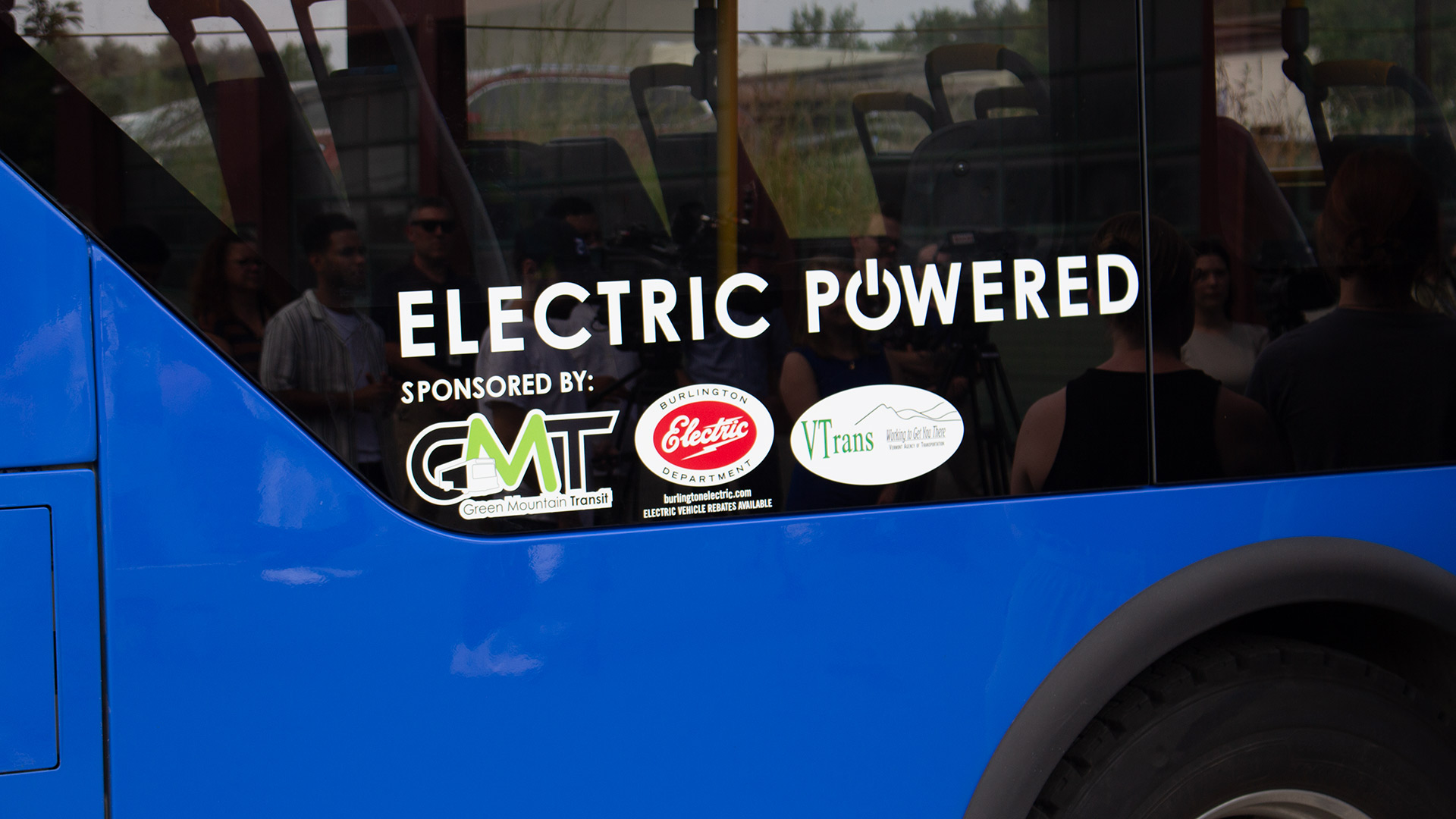Green Mountain Transit, Burlington Electric Department Announce Addition of Five Electric Transit Buses to Fleet
Buses Will Be Charged in Burlington, and Reduce Greenhouse Gas Emissions and Air Pollution while Serving Burlington and other Vermont Communities
Burlington, VT – Green Mountain Transit (GMT) and Burlington Electric Department (BED), joined by Mayor Emma Mulvaney-Stanak, and federal, state, and local leaders, today announced the addition of five electric-powered buses to the GMT fleet. The new E-buses, supported by BED incentives, began carrying passengers last month. These new E-buses bring to seven the total in the GMT fleet (the first two having gone into service in winter 2020), and will help reduce carbon emissions in Burlington and Chittenden County and beyond while providing cleaner, quieter transit along GMT service area routes. As part of the Burlington Net Zero Energy strategy, BED provided significant incentives and, together with the Vermont Agency of Transportation (VTrans), helped secure further funding from the federal government to ensure that GMT had the resources necessary to expand electric transit options in Burlington.
“Adding five more electric buses to the GMT fleet marks another significant step in Burlington’s efforts to fight climate change and make progress toward our community’s Net Zero Energy goals,” stated Mayor Emma Mulvaney-Stanak. “These buses will help us decrease our reliance on fossil fuels, cut carbon emissions, and improve air quality in our City. I look forward to working with our partners to continue the electrification of the GMT fleet that serves Burlington and neighboring communities.”
“Our new electric battery buses and the ones that will follow are possible only because of a broad coalition of local, state, and federal partners,” stated Clayton Clark, GMT General Manager. “What I find even more impressive than the buses themselves are the people putting them in service. Transitioning from diesel to electric buses has required ingenuity and hard work, especially for our mechanics who are learning to maintain and repair a totally different drive system. Burlington Electric Department has been critical in helping our team solve the challenges of deploying this new technology.”
“Burlington Electric Department is excited to provide electrification incentives to help more than triple the number of electric transit buses in the GMT fleet, which will lead to a reduction in transportation greenhouse gas emissions as part of our Net Zero Energy strategy,” stated Darren Springer, BED General Manager. “These buses will be based in Burlington, charging with 100 percent renewable energy while helping our community more efficiently utilize our electric grid and keep rates affordable by charging during off-peak hours. By using BED’s renewable electricity to charge the buses, instead of diesel imported from out-of-state, we also will keep more dollars in the local economy.”
“With transportation consistently ranking as the number one or two sector in terms of greenhouse gas emissions in Vermont, progress like these new electric buses is critical in our fight to create a better future for our children and grandchildren,” said Ross MacDonald, VTrans Public Transit Program Manager. “On behalf of Governor Phil Scott and VTrans Secretary Joe Flynn, the VTrans team is delighted that we have been able to play an important role in expanding the electrification of our public transportation system. We are grateful to the City of Burlington and Burlington Electric Department for their critical support that helped bring more E-buses to GMT.”
Made in America Buses Reduce Carbon Emissions
The five new, 40-foot E-buses were engineered and manufactured by New Flyer Industries in Anniston, AL. The GMT buses being replaced by the new E-buses had been travelling approximately 25,000 to 30,000 miles annually at 4.83 miles per gallon, translating to approximately 5,288 gallons of diesel per year. When the number of mmBTUs (0.1374) per gallon and the pounds of CO2 (161.3) per mmBTU are applied to 5,288 gallons, the result is the avoidance of approximately 59 tons of CO2 emissions per E-bus per year.
Miles on a Single Charge
The E-buses have 520 kWh of available battery capacity and generally will be charged overnight during off-peak hours with 100 percent renewably sourced electricity at GMT’s Burlington garage on Queen City Park Road. While New Flyer indicates that the E-buses have an operating range of up to 258 miles on a single charge, actual range will depend on a number of variables, including topography, passenger loads, number of stops, and weather.
Funding Collaboration
Funding for the five E-buses, which together cost $8,118,526, including the charging equipment and planned GMT facility work, was a collaboration provided by the following partners:
- $275,000 – Burlington Electric Department
- $6,729,067 – Federal Government Low/No Emissions Grant
- $1,114,459 – GMT, along with Federal and State Transportation Funding
Rory Jones, a Burlington High School (BHS) rising senior from the BHS City & Lake Program, and Camila Vivanco, a BHS rising sophomore, attended the announcement. Ms. Jones stated: “Our future is at stake. For my generation, this is personal. We plan to be here on this Earth for most of the next century, and we need a stable climate, and that means we need an economy that runs on renewable energy and serves the needs of all people.”
“One of the most significant aspects of today’s announcement of the addition of five new electric buses to the GMT fleet is hearing from BHS students,” stated Peggy O’Neill-Vivanco, Director, Vermont Clean Cities and Communities. “Not only do our students ride the bus and benefit directly from improved air quality, but also they are leading by example and encouraging us to do more to reduce emissions and get more people using transit. Working with GMT on fleet electrification and technician training is rewarding and benefits the health of GMT employees, transit riders, and the communities these buses serve.”


